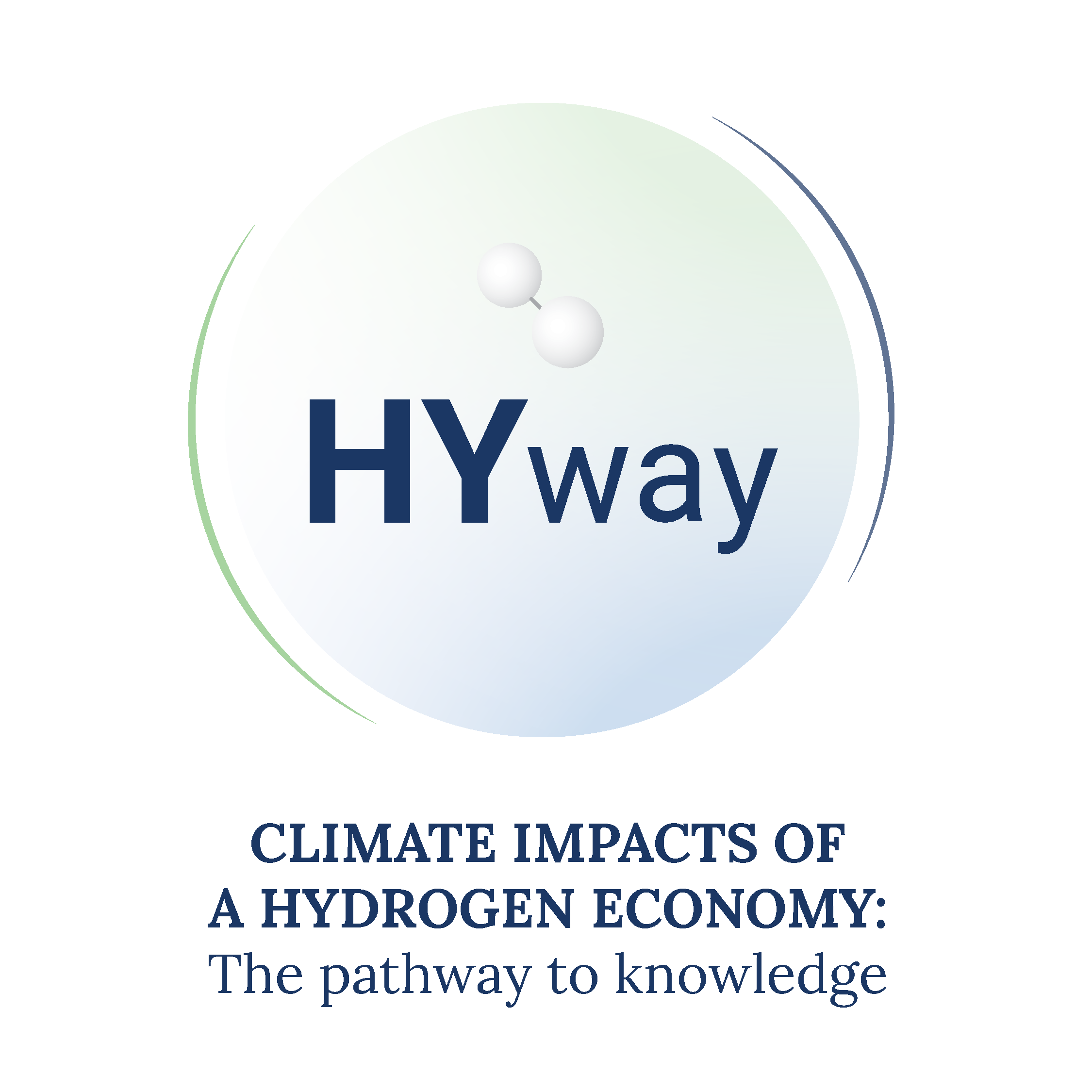HYway: Climate Impacts of a HYdrogen economy: the pathWAY to knowledge
The HYway project contributes to the understanding of the climate and environmental risks and co-benefits of a hydrogen economy and aims to advise policymakers and industry on options for addressing those risks.
Photo: hadynyah, iStock.
Project details
About the HYway project
Hydrogen is expected to play a significant role in the shift towards a net zero emissions society, by replacing fossil fuels. Several major economies have adopted new industrial strategies, in which hydrogen technologies play a key part.
However, there are important knowledge gaps about the benefits of a hydrogen economy and the climate effects of hydrogen leakages. The EU-funded research project HYway, coordinated by CICERO, sets out to fully understand the climate and environmental effect of hydrogen emissions.
While not a greenhouse gas itself, hydrogen emitted into the atmosphere will chemically react with and increase other greenhouse gases, such as methane, ozone and stratospheric water vapor, causing global warming.
The HYway project will provide critical information to policymakers and stakeholders on the climate impacts of hydrogen and the climate benefits that can be gained by transitioning to hydrogen towards a low-carbon economy - allowing them to make informed decisions about the role of hydrogen in the transition to a low-carbon economy.
To achieve this goal, HYway will develop innovative hydrogen emissions inventories and scenarios, estimate impacts using a wide range of models, and develop novel flux quantification methodologies.
HYway is built around five pillars.
-
Quantify the atmospheric hydrogen budget
-
Modelling the climate and environmental impacts of hydrogen emissions
-
Measuring hydrogen leakages and soil uptake fluxes
-
Create emissions inventories by sector and region
-
Develop a range of scenarios of a future hydrogen economy
Hydrogen has large chemical sources and sinks in the atmosphere, and by involving an ensemble of global chemistry models in HYway, the hydrogen budget will be better constrained. In addition to chemical sources, hydrogen is emitted both from anthropogenic activity, biomass burning and geological sources and through nitrogen fixation, and these emissions will be refined in HYway. New anthropogenic emissions inventories will be developed, and geological sources assessed.
New soil uptake parametrisations for dry deposition of hydrogen will be developed and implemented in several global models to explore realistic ranges in the main sink of hydrogen. Flux chamber and drone measurements will be used to establish a methodology for quantification of the soil sink and can be used for validation in regions with particularly large uncertainty.
Similarly, a methodology will be developed for improved monitoring of hydrogen leakage rates. Little is known about leakage rates due to the early stage of the deployment of infrastructure. HYway will design a method to quantify emissions at asset scale and measure leakage on several sites using drones and flask techniques, from which emission factors will be verified.
HYway will build on existing methods to create realistic future scenarios to fully explore the climate and environmental impacts of a hydrogen economy, including co-emissions and associated reductions in fossil fuel-related emissions.
The project includes a large advisory board of industry partners, several of them from established hydrogen collaborations. The advisory board will assist in estimating hydrogen leakage rates and in establishing realistic scenarios for a future hydrogen economy.
The HYway Project Coordinator (PI) is Maria Sand, senior researcher at CICERO, Project Co-lead is Gunnar Myhre, Research Director at CICERO and Project Manager is Sigrid Rian Song, Research Coordinator at CICERO.
Follow the project at
https://www.linkedin.com/company/hyway-horizon-europe-project/
Partners
The HYway project is coordinated by CICERO Center for International Climate Research. It is composed of 11 other partners from leading European groups on global atmospheric chemistry modeling and land-surface modelling, measurements of trace gases, as well as expertise within satellite observations.
The National Centre for Scientific Research (CNRS)
Web: Centre national de la recherche scientifique (CNRS)
The French Alternative Energies and Atomic Energy Commission (CEA)
Web: https://www.lsce.ipsl.fr/
The German Aerospace Center (DLR)
Web: https://www.dlr.de/en/pa/about-us/departments/earth-system-modelling
The International Institute for Applied Systems Analysis (IIASA)
Web: IIASA | International Institute for Applied Systems Analysis
The Royal Netherlands Meteorological Institute (KNMI)
Web: https://www.knmi.nl/home
University of Lund (ULUND)
Web: https://www.nateko.lu.se/
The Norwegian Meteorological Institute (METNO)
Web: https://www.met.no
The Cyprus Institute (CyI)
Web: https://www.cyi.ac.cy/
University of Edinburgh (UEDIN)
Web: The University of Edinburgh | The University of Edinburgh
University of Reading (UREAD)
Web: University of Reading
University of Leeds (UNIVLEEDS)
Web: leeds.ac.uk and Home - Priestley Centre for Climate Futures (leeds.ac.uk)

